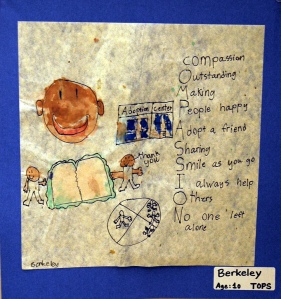The best writers I know also happen to be the best readers. Why that might be true is not hard to understand. The best readers understand how a text leads a reader through a set of ideas. They see the individual choices the author made and understand the strategy behind those choices. The best writers find ways to incorporate those strategies in their own writing.
Learning to read in this way takes some practice. You must read critically, compare the text to other similar texts, and think about how the text moved you. I occasionally try to speed up that process by taking a piece of writing that I find effective and annotating it for my students to show them how I see it working. That’s what I will be doing here.
The piece of text I’ve chosen popped up in my wife’s RSS feed following the Asiana Airlines crash in San Francisco earlier this year. She sent it to me because she knows that I’ve read all of Malcolm Gladwell’s books, and she thought it was a great deconstruction of one of Gladwell’s greatest sins, taking the kernel of an idea or theory and extending it past its intended usefulness. It wasn’t a surprise to me that he does this. Gladwell is an expert journalist with an interest in psychology, sociology, and other sciences. Many experts in those fields feel that Gladwell oversimplifies topics. However, his writing demonstrates his eye for the interesting and counterintuitive, and when he finds that, he writes fantastic prose to introduce that concept to a non-expert audience. I’ve always equated reading Gladwell to watching reality television; you know you can’t really trust what you see to be entirely the truth of people’s lives, but the results can be entertaining and thought provoking nevertheless. With this opinion of Gladwell in mind, I had figured that the link my wife sent me would recycle the same criticisms that I’ve already read. The fact that it did not is part of the reason that I’ve chosen the text below: it forced me to think in ways that I hadn’t in the past. That’s a sign of good writing.

Photo from the flickr account of State Library of Victoria Collections
The text below comes from the blog, Ask a Korean! That name explains what the blog does. The main author, who goes by The Korean (hereafter, I’ll just use TK), takes queries via email and then writes up an explanation based on his perspective as someone who has experienced both Korean and American cultures. The blog’s record of success (over 3.4 million visitors, 6.5 million page views, and appearances in national media) speaks to the quality of the posts as well as the author’s prolificness.
I’ve asked for and was graciously granted permission by TK to reproduce the post in its entirety and to insert my own commentary. After this point, all of my words will appear in italics and will be indented.
Culturalism, Gladwell, and Airplane Crashes
A few weeks ago, I attended a PGA golf tournament. You might think watching golf is boring, but I beg to differ: professional golf tournaments offer a chance to witness firsthand one of the amazing athletic feats in the world.
If an ordinary weekend golfer made ten great shots in a row, that might be the best day of her golfing life. If I saw two ordinary weekend golfers making ten great shots in a row at the same time, I would start exclaiming out loud after each shot and buy a round of beer for both of them. Now, imagine watching a hundred fifty golfers playing, in a championship golf course that is designed to leave a very small margin of error. Imagine watching virtually every one of them knocking off ten great shots in a row. The good players may hit 20 or 30 great shots in a row; the best ones, 40, 50, 60 great shots. This is why a golf tournament is so exciting: it is a collective display of perfection, shown over and over and over again. Continue reading ‘Reading for writers: Breakdown of “Culturalism, Gladwell, and Airplane Crashes” from Ask A Korean!’







